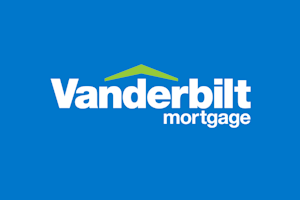
Guide | Home Buying

Getting a mortgage and purchasing a home are big decisions with several steps. One part that is sometimes confusing is the mortgage escrow account and how the escrow process works. Check out our breakdown to help you understand the process better.
Getting a mortgage and purchasing a home are big decisions with several steps. One item that is often new and/or confusing to buyers is a mortgage escrow account. Let’s walk through defining what an escrow account is and how it works.
To simplify this part of the mortgage process, we have provided a quick explanation of escrow.
An escrow account refers to an account established by a mortgage servicer on behalf of a borrower to collect money to pay property or personal property taxes and insurance premiums (including flood insurance). The money that goes into the account comes from a portion of your monthly mortgage payment.
An escrow account ensures that the homeowner has enough money to pay property taxes and home insurance premiums. Holding these funds in escrow keeps the homeowner from having to separately save and pay large lump sums at one time as taxes and insurance payments could add up to a relatively large amount.
An escrow account can also help the homeowner cover the additional costs in the event insurance premiums or taxes unexpectedly increase. If this happens, your mortgage servicer may advance the funds on your behalf, then increase your escrow payment to collect both the amount advanced and the new higher amount owed. The mortgage servicer will divide the additional costs up over the course of the year to make this expense more manageable for the customer.

The formula for calculating escrow is fairly simple. The tax and home insurance bills for the upcoming year are totaled and then divided by the number of payments per year. (If your mortgage servicer collects for a cushion, the amount needed for that cushion will be factored into the equation as well.) The additional amount is then added to the mortgage payment. Any changes in insurance premiums or property tax rates that occur after this calculation will alter the amount for escrow added to the mortgage payment. This calculation is done annually and can be done as needed.
The mortgage servicer deposits the additional money collected into the escrow account and uses those funds to pay the insurance premium and property taxes on behalf of the homeowner when they become due. Either the insurance company or local taxing authority will send the bills directly to the mortgage servicer for payment, or the borrower will need to forward these bills to the servicer upon receipt.
If the insurance company or local taxing authorities fail to send these bills directly to your mortgage company, you can always contact them and request that they do so. You can also check with your mortgage company to ensure they have a copy of the tax or insurance bill once you receive your copy. (Helpful hint: your tax bill copy may also indicate it is just for your records.) Having an escrow account helps ensure that insurance payments and property taxes are paid on time. If you qualify for tax exemptions and have no property or personal property tax bill to be paid, the only item that will be escrowed for is your homeowner’s insurance.
Depending on the regulations of your local taxing authority, you may or may not qualify for a tax exemption. A few reasons you may qualify for a tax exemption could be:
There are several other scenarios that could qualify you for a tax exemption. To find out if you qualify, contact your local property assessor.
Do you want to learn more about finances? Check out our homeowner’s guide that is geared towards helpful tips for home and budget maintenance.

Guide | Home Buying

Article | Home Buying

Guide | Home Buying
Stay in the Know
By subscribing, I agree that Vanderbilt Mortgage may contact me by telephone, provide me with marketing communications about Vanderbilt Mortgage products and services, and share my contact information as described in our website terms.